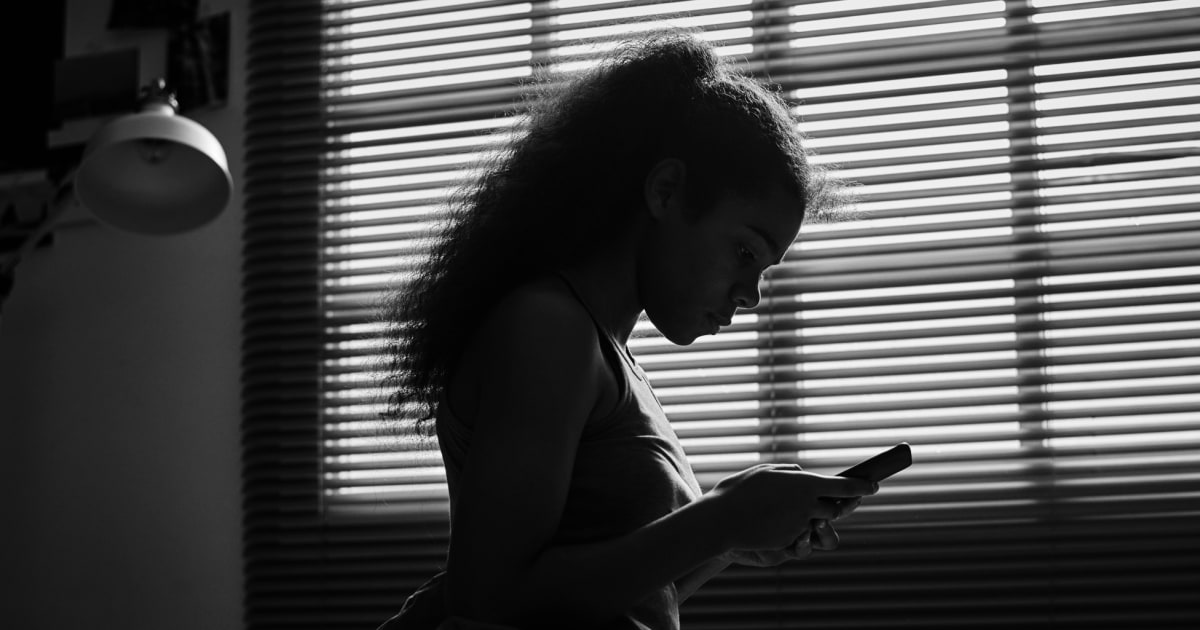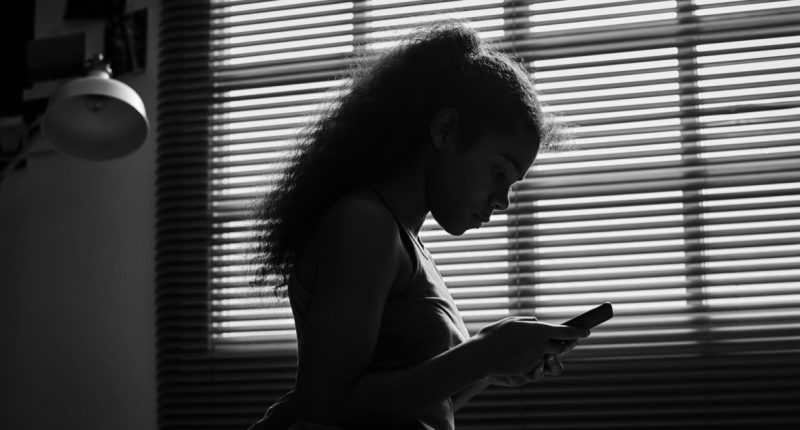
Mounting evidence shows the devastating toll online racism takes on Black youth.
According to a study published Wednesday in the journal JAMA Psychiatry, Black children and teens who experience racial discrimination online may develop symptoms related to post-traumatic stress disorder.
Those PTSD symptoms, the researchers found, were also potentially linked to suicidal thoughts.
The suicide rates of Black youth have risen over the past two decades, said study co-author Ashley Denise Maxie-Moreman, a pediatric clinical psychologist at Children’s National Hospital in Washington, D.C.
A 2023 report from Johns Hopkins Bloomberg School of Public Health found that from 2007 to 2020, the suicide rate in Black children and teens ages 10 to 17 increased by 144% — the fastest increase compared to other racial and ethnic groups.
The researchers suspected that online racism might play a role in suicide risk.
“We know that cyberbullying is an issue for all kiddos,” Maxie-Moreman said. “But in particular, for our Black youth, cyberbullying in the form of online racial discrimination is a really big issue.”
The new study included data from 525 Black children and teens, ages 11 to 19, collected in late 2020. The researchers looked at online racial discrimination directed specifically to an individual, such as a racist meme or messaging. (A separate study, in the Journal of Applied Developmental Psychology, found that Black teens reported experiencing an average of five instances of racial discrimination per day.)
In response to online racism, the children and teens in the study reported several symptoms of PTSD, Maxie-Moreman said, including feeling on guard and isolated, having intrusive thoughts that won’t go away, and uncontrollable distress.
The researchers found that children and teens who experienced racism online were more likely to report PTSD symptoms, and that those who developed PTSD symptoms were more likely to report suicidal thoughts. However, they didn’t find that experiencing online racism directly led to an increased likelihood of suicidal thoughts. Maxie-Moreman said a larger study could help uncover whether there is a direct link between the two.
Dr. Kevin Simon, Boston’s first chief behavioral health officer and a pediatric psychiatrist at Boston Children’s Hospital, said symptoms of PTSD can often overlap with symptoms of depression, both of which are linked to suicidal thoughts. These include feelings of irritability, having a negative mood, poor sleep, detachment from others and individuals not wanting to enjoy activities they once enjoyed, said Simon, who was not involved with the new research.
The psychological effects of pervasive racism
Other experts agreed that the new findings underscore just how harmful experiencing racism — both online and offline — can be to Black youth.
Michael Lindsey, the Dean and Paulette Goddard professor of social work at the New York University Silver School of Social Work, said that witnessing the evidence of harm being done to Black people either by law enforcement or vigilantes can create a sense of “helplessness or hopelessness” in Black adolescents about their future. The exposure can also influence their mental health long term, leading them further into depression or by making them anxious.
Black adolescents may also experience hypervigilance — a state of high alert — if they had an encounter either online or in the real world that had a “debilitating impact on them,” Lindsey said. Other incidents that may prove harmful to a Black child’s psyche include family disruptions and dislocation along with food and housing insecurities, he added.
Dr. Amanda Calhoun, chief resident of Yale University’s Albert J. Solnit integrated adult/child psychiatry program, said the high rates of suicide in Black children and teens stem from offline factors fueled by anti-Black racism, including adultification, criminalization and the success of punishment on Black children. Calhoun also said that racial discrimination can be harmful for pregnant Black women and can result in low birth weights for infants, which puts babies more at risk for developing mental health issues in childhood and adulthood.
“I really think a primary driver of the declining mental health that we’re seeing in Black children are experiences of anti-Black racism,” Calhoun said, adding that “there is little to no standardized training in how do you help Black children to navigate being a Black child in America and experiencing racism.”
Providing a community of support
The study authors wrote that online platforms should be aware of the associations between online racial discrimination, PTSD and suicidal ideation and create safer spaces for Black teens. Some of those regulatory actions include proactive monitoring and reduction of hate speech, Maxie-Moreman said.
“It’s really scary to think that our Black youth could be having suicidal thoughts because of racist comments or racist memes or racist messages or racist chat groups that they are being exposed to online,” she said.
Experts who spoke to NBC News said that there are several approaches that can be taken to help Black youth.
This includes parents having an open dialogue with their children about the negative experiences they have online, at school or in their friend groups, Lindsey said.
Schoolteachers and social workers are also important in connecting Black youth to mental health services.
“Social workers are the largest provider of mental health services,” Lindsey said. “So, we need more school social workers and they can be incredibly helpful to ensuring that kids are being identified early when there is a challenge and connected to support from services early and often.”
Calhoun cautioned that some therapy approaches may be ineffective for Black children and teens dealing with racism. One example she gave was cognitive behavioral therapy, which is used to challenge distorted thinking, or mental filters or biases that make individuals have negative feelings about themselves.
“You’re going to challenge the thought that Black children have that they’re being treated unfairly, and challenge that and say that that’s not really true?” Calhoun said. “So, it’s very easy for cognitive behavioral therapy to become gaslighting.”
Black children can also experience racism and biases from their therapist, which can also affect treatment, she added.
Simon, who is a Black psychiatrist, agreed. He said that it’s necessary for white mental health care providers to “be genuinely empathetic and generally curious about the experiences of their Black patients.” As a provider, he said he also makes sure to acknowledge and affirm his patients’ experiences and counteract the devaluation with positive affirmations.
“You are just as good of a person that you’re supposed to be,” Simon said he tells patients. “You don’t have to try to be more than you should.”
If you or someone you know is in crisis, call or text 988 to reach the Suicide and Crisis Lifeline or chat live at 988lifeline.org. You can also visit SpeakingOfSuicide.com/resources for additional support.
Source: | This article originally belongs to Nbcnews.com










